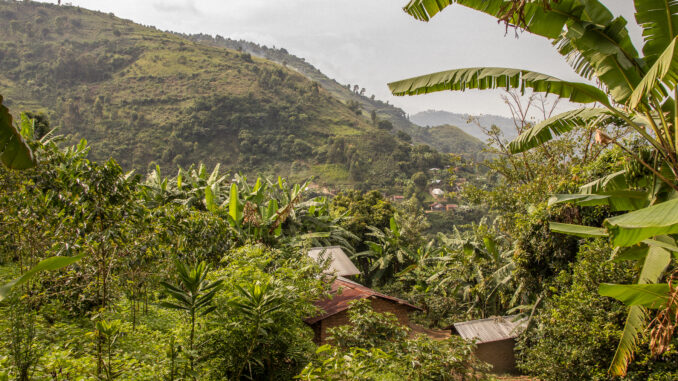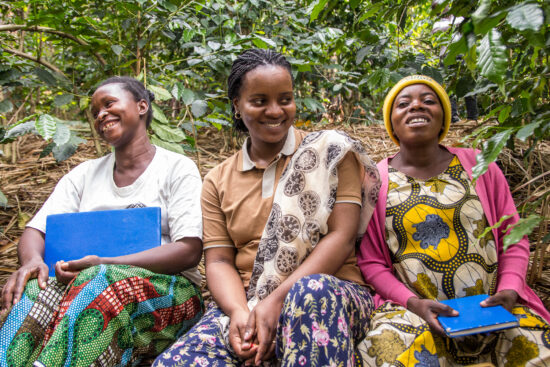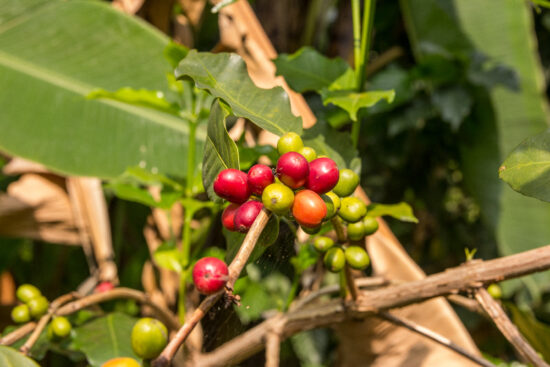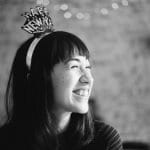
Green importer Mighty Peace is making positive social change through Congolese coffee; learn more about this region on Instagram Live.
BY KATRINA YENTCH
BARISTA MAGAZINE ONLINE
Photos courtesy of Mighty Peace Coffee
Lately, we’ve witnessed many longtime coffee-growing countries enter the realm of specialty production—including Indonesia, Haiti, and Venezuela—for coffee’s economy-strengthening capabilities. Another emerging coffee country is the Democratic Republic of Congo, a region whose coffees have been difficult to find in cafés. On behalf of Mighty Peace Coffee, U.S. Brewers Cup competitor, judge, and roaster Blair Smith is sharing the stories behind Congolese coffees through a brewing demo tomorrow on Instagram Live.

Meet Mighty Peace Coffee
Mighty Peace is a green importer whose mission is to make positive change through the sales of specialty Congolese coffee. Working on behalf of the Congolese international peace movement, the business aims to improve the living conditions of those in the Congo, a region of Africa with a history of conflict (primarily over mineral trading) and poverty. As climate change makes it difficult to grow coffee in regions like Ethiopia and Kenya, coffees from the Congo have the ability to bring another supply of African-grown beans to roasters.
Blair, who currently works in green sales for Mighty Peace, is excited to share coffees sourced by the importer. “When I first connected with Mighty Peace, I really connected with their values, and what they were trying to accomplish,“ she explains. “… Working with one origin also gave me the ability to tell a unique story that was focused, while highlighting the tremendous improvements to the coffee quality.“
Umoja and Mapendo Women
Blair will be brewing two Congolese coffees for the digital event, which is just a small sample of the many high-quality coffees that other partnering roasters have been scoring at 85+ points lately. The first coffee is a SL34 variety called Umoja, Swahili for “solidarity,“ grown at 1,480-2,000 meters above sea level. It grows in South Kivu, a region that has experienced coffee smuggling in the past, and is grown by cooperatives that make up over 11,600 members.
The second coffee is also a SL34 called Mapendo Women (Mapendo for “love“), which grows at the same elevation as Umoja and is farmed in 16 separate lots by 4,200 producers. A large percentage of those producers are women, and according to Blair, many are widowed because of conflict that has disrupted parts of the Congo. As a result, gender justice is a priority of the region.

Learning More About Congolese Coffee
Blair is excited to share more about what makes these Congolese coffees so special, what the year ahead looks like for Mighty Peace coffee, and simply more about the coffee-growing climate in the DRC in general. “My biggest hurdle is honestly that these coffees have really never been talked about enough,“ she explains. “People have almost no idea what Congolese coffees taste like, or really that it could be such a strong growing region in Africa.“
Blair considers this event and others like it to be an opportunity to change the narrative of coffee buying. While at times buyers are considering purchases based on deals and interesting experimental processes, she hopes that there can be even more purchasing based on coffees that are making the biggest social impact.
To be a part of the Instagram Live, tune in at 12 p.m. Mountain Standard Time to @theblairista.

